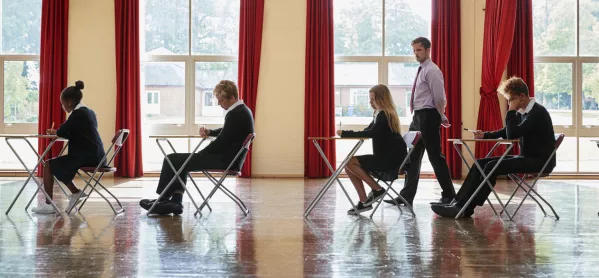6 ways to support students still facing exams this year

In Malaysia, as in many other nations around the world, IGCSE exams are still going head - meaning students are revising as normal, while knowing that their peers elsewhere are being given teacher-assessed grades.
This situation is strange but our focus as educators must be to help our students - which is why a focus now on the final strategies and techniques that will enable the best possible exam outcomes is vital.
International schools: Preparing students for IGCSE exams
Here are six ways we’re doing just that.
1. Offering mentoring
Following on from our January mock exams and now with predicted grades being scrutinised, our students’ needs have been identified and a coaching and mentoring plan is now up and running.
So that our students understand just how important these sessions are, they are each allocated to a member of the senior leadership team, including both our headteacher and principal, as their coach.
Each coach has to invite their mentee to a scheduled weekly meeting and there are very clear guidelines about what these sessions should look like.
Students should leave each session with an action point to work on that will support them and give them a takeaway strategy to work on in a particular subject or as part of their general exam revision.
2. Keeping an eye on students’ mood
Time for students to feel that they can chat or open up to a trusted teacher is vital at this time of year.
Form tutors play a key role in this, setting the right tone for the day in a positive way, but also acting as the eyes on the ground and hopefully someone a student feels they can open up to if they are feeling stressed, anxious or generally negative about a particular subject or aspect of the school day.
They are also working tirelessly to check in with students every morning before the day begins. It is their job to sense the mood and be alert when there is a cause for concern.
Alongside this, as expected with exams nearing, our school counsellor has seen a rise in the number of students turning up at his door for a consultation, and our weekly meetings to update on pupil profiles is essential.
3. Sharing good ideas
While Covid may make it harder to work in large groups, there are many benefits to collaborating across classes where possible.
For example, my Year 11 students are working on their Paper 1 reading skills in English. The final question on the paper is a writing task worth 25 marks. For them it is the hardest question on the paper and so instead of making them churn out response after response, we’ve been collaborating (socially distancing, of course) on how to get to those top band marks.
They worked on building a response together and presented what mark they thought it was and why. A gallery critique followed it and then they continued to work together to learn how to get that initial response into a top band.
4. Outlining what good revisions looks like
It’s important that we discuss what good revision looks like, too. Teachers need to remind students that this is revision, they’ve been taught the information and they now need to use strategies specific to that subject to be able to recall this knowledge.
In English literature, we use knowledge organisers and flashcards as a strategy for recalling that AO1 knowledge and key quotations, for example. Every subject may be different but taking time to discuss this can pay dividends.
Sometimes there’s no greater support than peer support so at a recent motivational camp, we had our very own students share their own revision techniques for particular subjects.
5. Informing parents
Good communication with parents is key. Keeping them updated with exam entries, forecast grades and even with basics such as where to find the exam timetables and how to talk their child though it are key to helping parents feel supported, too.
Do your parents know what a good revision timetable should look like and how much time their child should be revising for, for example? Or where exams are taking place and how long they last?
We held a workshop with our parents to talk through the basic exam practicalities and logistics and it helped everyone feel more confident and clear about what lies ahead.
6. Nudging parents into helpful behaviours
Parent workshops can also be a great way to chat with parents about how to create supportive and nurturing environments at home - without telling them how to parent.
In the right environment and with the right tone, this can be a really useful session for first-time exam season parents and experienced parents alike to help them pick up some new tips for helping to support their child this time and share their own top tips - from early bedtimes to eating well.
For some parents, just attending the session is their way of being there for their child and will also go a long way.
So good luck this year to all of us: students, teachers and parents. We’re all new to this post-Covid exam experience and it’s a challenge for us all.
Maddy Jones is key stage 4 director at an international school in Malaysia
You need a Tes subscription to read this article
Subscribe now to read this article and get other subscriber-only content:
- Unlimited access to all Tes magazine content
- Exclusive subscriber-only stories
- Award-winning email newsletters
Already a subscriber? Log in
You need a subscription to read this article
Subscribe now to read this article and get other subscriber-only content, including:
- Unlimited access to all Tes magazine content
- Exclusive subscriber-only stories
- Award-winning email newsletters